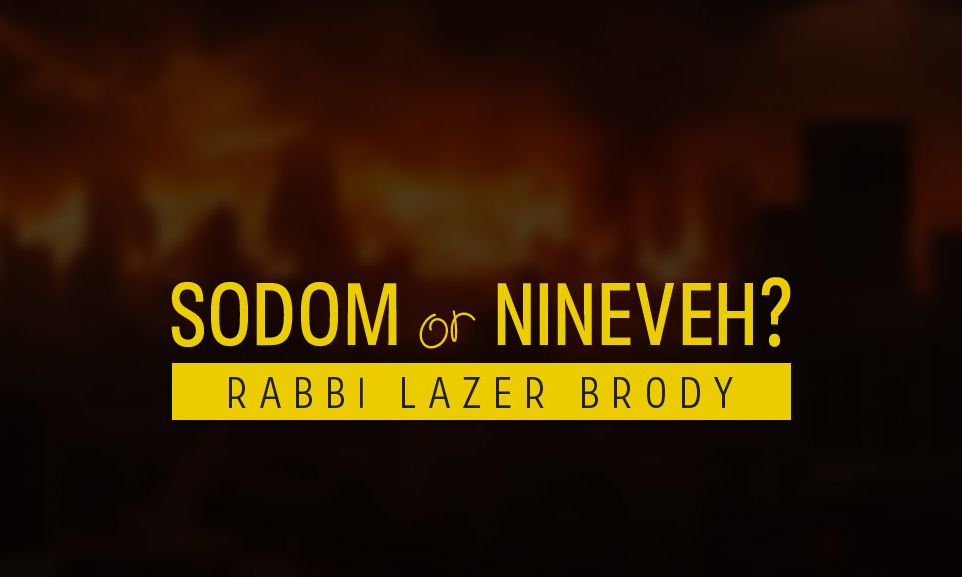
Vayera: Sodom or Nineveh?
Hashem tried to spiritually awaken the Sodomites for 25 years to no avail. Nineveh, though, made a complete turnaround after hearing only 5 words from Jonah…

“Their sin has been extremely grave.” (Genesis 18:20).
The gravity of Sodom’s evil, both in the areas of social injustice and immorality, led to its destruction.
Sodom was a paradise on earth – green and fertile with a healthy climate. Its opulence and comfort are what attracted Lot to live there rather than remaining with his holy uncle Abraham in Hebron. There was plenty of money in Sodom, and the more money they had the more corrupt and miserly they became. The area influenced the populace so much that Hashem could not even find one worthy person in all of the city or the four other surrounding towns that were destroyed with it.
Don’t think that Hashem acted on a whim when He rained the hellfire and brimstone that turned Sodom, Gomorrah and the Dead Sea vicinity into utter desolation. The Midrash tells us that Sodom had fifty two golden years of abundance. But, during the last 25 years of its existence, Sodom suffered a series of earthquakes, storms and other natural disasters. Hashem sent them wake-up call after wake-up call, each one louder than the previous one. Yet, no one took Hashem’s signs to heart. In Sodom and Gomorrah, it was business as usual until the bitter end (see Yalkut Shimoni, Job, Ch. 9, 904).
Let’s look at the dramatic contrast between Nineveh and Sodom.
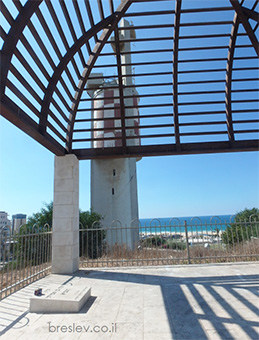 Image at right – the grave site of Jonah the Prophet in Ashdod, Israel, adjacent to the Ashdod Lighthouse on a hill overlooking the shore where he was washed up when he was regurgitated from the whale’s belly
Image at right – the grave site of Jonah the Prophet in Ashdod, Israel, adjacent to the Ashdod Lighthouse on a hill overlooking the shore where he was washed up when he was regurgitated from the whale’s belly
Nineveh was very similar to Sodom. It was the main metropolis of the ancient Assyrian empire, located where the city of Mosul, Iraq is today. In the Fertile Crescent located between the Tigris River where Nineveh was situated and the Euphrates River, Nineveh too was a thriving city. But, like Sodom, their money and comforts went to their heads and they too became socially and morally corrupt. Hashem, in His love for all His creations – even the evil – gives them a chance to change their ways. Instead of sending natural disasters to Nineveh, Hashem sent them the Prophet Jonah to warn them that their destruction is imminent and that they now face the same verdict that Sodom and Gomorrah faced. Jonah said a mere five words – b’od chamisha yamim Nineveh nehefechet – in five days, Nineveh will be destroyed (see Jonah, Chapter 3). The people of Nineveh took Jonah seriously, unlike their predecessors from Sodom who ignored twenty-five years of messages from Hashem.
The King of Nineveh immediately took action. He took off his regal gold-embroidered cloak, got off his throne, donned sackcloth and sat on the floor in complete penitence. The entire populace followed suit. Not only did the people fast, but even the livestock refrained from eating. Nineveh’s spiritual revolution for the good made such an impression in the Heavenly Court that all stern decrees were rendered null and void.
We see something amazing here: 25 years of natural disasters had no effect on Sodom and Gomorrah, yet five words from Jonah the Prophet caused a total upheaval in Nineveh, from the king to the lowliest slave in the kingdom. What’s the difference between the two?
Rabbi David Kimchi, aka the “Radak” (1160–1235), one of our great medieval rabbis and biblical commentators, explains that the sailors aboard ship with Jonah, who witnessed all the miracles that happened at sea with Jonah aboard, came from Nineveh. When Jonah came to their city, they immediately ran to the King of Nineveh and told him that Jonah, the man of G-d, is the real deal. They must heed his warning (see Radak, Jonah 3:5). The king took the sailors’ words to heart and Nineveh was saved.
In every generation, Hashem sends a righteous and pious individual whose blessings and prayers invoke miracles. Yet, it’s not the miracles that earn this person the title of “tzaddik of the generation” or even his impeccable righteousness. It is his instruction and moral guidance for the entire generation, Jew and non-Jew alike. The Midrash in fact tells us that Jonah prophesied among Jews and non-Jews, both in Jerusalem and in Nineveh (Pirkei D’Rav Eliezer, Ch. 10). As such, when this tzaddik tells the generation to do something, they’d be wise to listen, for it could make the difference between Nineveh and Sodom.






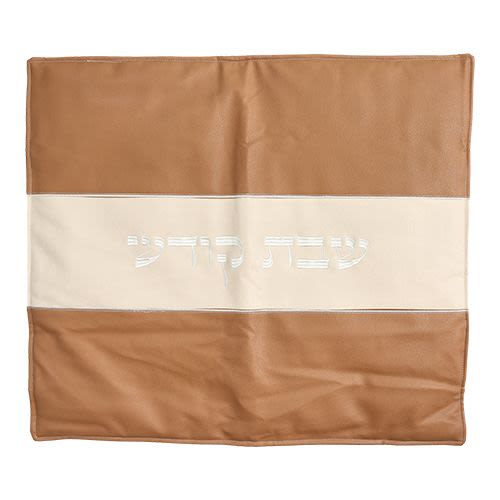
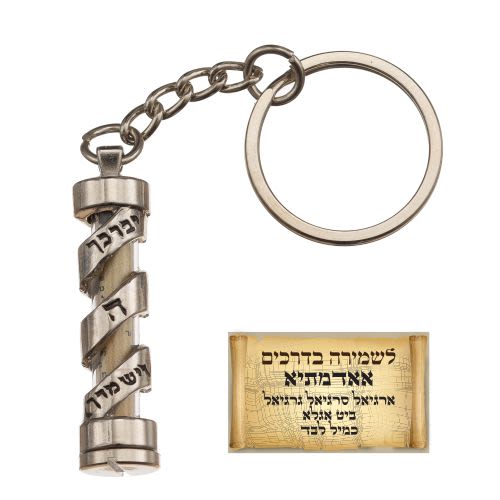
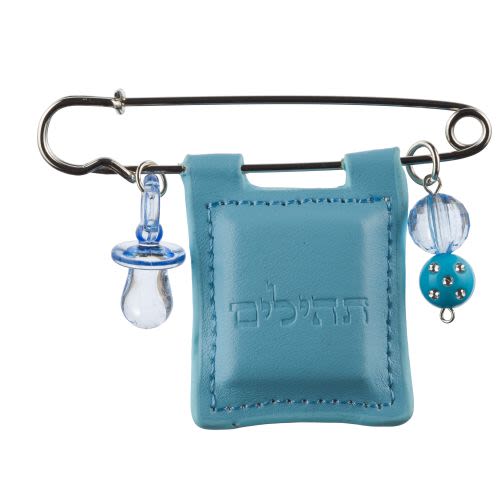
11/02/2017
Did Yonah receive resoect as representative of kedusha of”Am Yisroel ” ?
Shalom ,k'vod ha Rav and shailah ,, Was Yonah resoectrd by the king of Nineveh as a representative of kedusha of"Am Yisroel " ? Does not the destiny of kol ha-olam depend on how we Yehudim appear I'H', hopefully as mamlechet kodosh to the rest of the world ? Thanks, Mordechai
Response: Yes, Mordechai – Yonah received tremendous respect. Every blessing, LB
11/02/2017
Shalom ,k'vod ha Rav and shailah ,, Was Yonah resoectrd by the king of Nineveh as a representative of kedusha of"Am Yisroel " ? Does not the destiny of kol ha-olam depend on how we Yehudim appear I'H', hopefully as mamlechet kodosh to the rest of the world ? Thanks, Mordechai
Response: Yes, Mordechai – Yonah received tremendous respect. Every blessing, LB